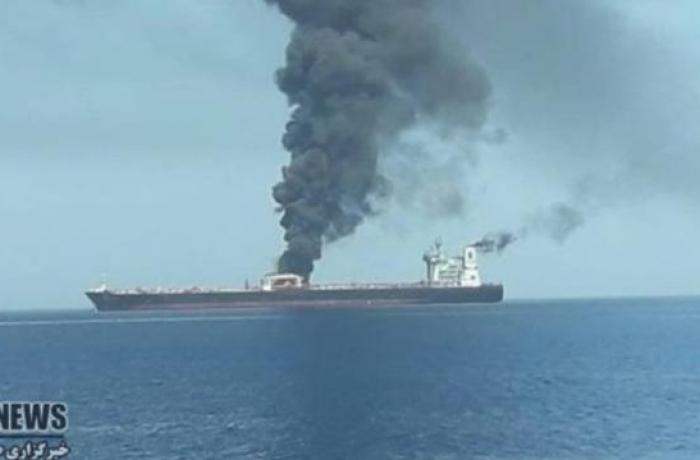The U.S. has classified Yemen’s Houthis as a foreign terrorist organization following a series of attacks on oil tankers in the Red Sea and as Washington seeks to increase pressure on Iran in the final days of Donald Trump’s presidency.

The move will give the U.S. “additional tools” with which to counter security threats in the Persian Gulf, according to Secretary of State Michael Pompeo. The Houthis are backed by Iran in Yemen’s civil war and have been blamed for several missile strikes and other attacks on Saudi Arabia.
“The designations are intended to hold Ansarallah accountable for its terrorist acts, including cross-border attacks threatening civilian populations, infrastructure, and commercial shipping,” Pompeo said Sunday in a statement, referring to the group by another name. “Rather than distance itself from the Iranian regime, it has embraced the world’s leading state-sponsor of terrorism even more.”
The Houthis have been fighting Yemen’s United Nations-recognized government since 2014. A Saudi Arabian-led coalition intervened the following year on the side of the government. The UN has called the conflict — in which tens of thousands of people have died — the world’s worst humanitarian crisis.
The U.S. decision will increase pressure on the Houthis and help end “this miserable, long conflict,” the UN-backed government said through its Ministry of Foreign Affairs.
The Houthis criticized the move via a statement on Monday and said they “have the right to respond to any designation coming from the Trump administration or any other administration.”
Democratic U.S. Representative Gregory Meeks, the new chairman of the House Foreign Affairs Committee, said that the designation “is short-sighted and endangers the lives of the Yemeni people.”
The Trump administration “has yet to learn that they can’t sanction their way out of a civil war,” he said.
Missile Strike
A fuel tanker was hit by an explosion near the Saudi port of Jeddah last month. While the kingdom didn’t blame the Houthis, it described the incident as a “terrorist attack.” Three weeks before that another vessel was damaged, possibly by a mine, at the Saudi terminal of Shuqaiq and the Houthis claimed a missile strike on a fuel depot in Jeddah owned by Saudi Aramco, the state energy company.
Yemen President Abd Rabbuh Mansur Hadi blamed the Houthis for an attack on Aden airport on Dec. 30, which the U.S. says killed 27 people.
The Houthis have regularly targeted Saudi energy installations. They said they were responsible for an attack on Saudi Arabia’s main oil pipeline in May 2019 and the world’s biggest crude-processing plant at Abqaiq a few months later.
The latter incident, in which armed drones temporarily knocked out about half of Saudi Arabia’s oil-production capacity, caused crude prices to soar. The UN said the drones were probably of Iranian origin.
Korean Tanker
The Trump administration has tightened sanctions on Iran in recent months as it tries to weaken the Islamic Republic economically and force it to stop meddling in Middle Eastern countries such as Iraq, Lebanon, Syria and Yemen. The new penalties will make it harder for President-elect Joe Biden to revive a nuclear deal with Iran that Trump abandoned in 2018.
The tensions have also affected U.S. allies. Iran seized a South Korea-flagged oil tanker last week. Tehran says $7 billion from oil sales are trapped in South Korea due to Washington’s sanctions and it needs them to pay for goods including coronavirus vaccines.
South Korea’s deputy foreign minister is in Tehran this week to try to get the ship released and to discuss the funds.
The U.S. will designate the Houthis as a terrorist organization on Jan. 19, Pompeo said. Three of its leaders — Abdul Malik al-Houthi, Abd al-Khaliq Badr al-Din al-Houthi and Abdullah Yahya al Hakim — will be classified as global terrorists.
Pompeo said U.S. humanitarian efforts to help victims of Yemen’s war could be hindered, but that Washington will put in place measures to counteract this.
Bloomberg

Leave a Reply
You must be logged in to post a comment.